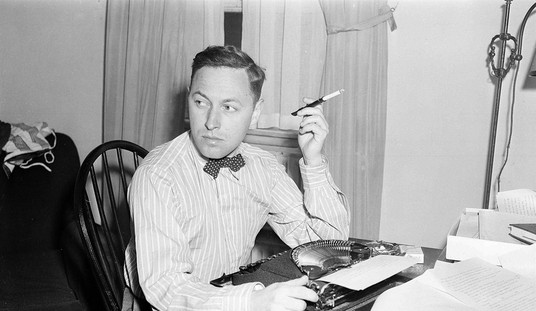For months we have had plenty of polling on Barack Obama’s approval score, the generic ballot for Congress, Congress’ approval score, the race for the GOP nomination, and match-ups of Barack Obama versus an unnamed or named Republican. We are now less than a month from the first-in-the-nation Iowa caucuses on January 3, and new Iowa polls are appearing nearly every day. The polls are bringing good news for former House Speaker Newt Gingrich, who has surged into the lead in Iowa and nationally at an opportune time.
Six separate Iowa polls have been released in the last week, and Gingrich holds a lead of from 9 to 15 points over either Congressman Ron Paul or former Governor Mitt Romney in each of them. Gingrich polls in the high 20s to low 30s, while Paul and Romney are in the high teens. The other candidates poll in the single digits: Governor Rick Perry, Congresswoman Michele Bachmann, and former Senator Rick Santorum are all in the high single digits, and former Governor John Huntsman is near zero.
Nationally, Gingrich holds a similar size lead over his two closest competitors.
This week, pollsters started excluding Herman Cain from their surveys, after Cain suspended his campaign on Saturday, and Gingrich appears to have benefited, jumping a few points in most surveys as compared to polls taken the week before when Cain was sill offered as a choice to voters.
The GOP race has had a turbulent last few months with rapid rises and then drop-offs in support levels for Michele Bachmann, then Rick Perry, and then Herman Cain, before Gingrich’s recent rise to the top. Romney has stayed pretty much in place, first trailing Perry, then Cain, and now Gingrich. Gingrich, however, is a different challenge for Romney than were the other short-term leaders in the race. Rick Perry dropped off after a series of very weak debate performances. Herman Cain’s candidacy collapsed in part due to charges of sexual harassment and adultery, but also for his halting performance in speaking about foreign policy issues. Gingrich, on the other hand, has risen due to his strong debate performances and his ability to communicate a command of the issues. But more than that, Gingrich has, to this point, avoided attacking his GOP challengers, and focused his campaign on attacking Barack Obama and the national news media, the two biggest targets for conservative voters. Pretty much every standoff between the candidates in the debates has tarnished both of the combatants (Romney and Perry, Santorum and Perry, Bachmann and Perry). Gingrich, by refusing to dish it out to the other candidates, has not had a glove laid on him in retribution.
Now, however, with a solid lead, and only a few weeks till the first votes that count for the nomination, Gingrich is getting the same treatment reserved earlier for Perry and Romney. Ron Paul has hit Gingrich the hardest, with a new TV ad playing in Iowa following an earlier and longer Internet ad.
Paul, who marches under the libertarian banner, is targeting Gingrich as the quintessential Washington insider, who has profited personally from the relationships he developed while in Congress, and for championing causes that are anathema to the conservative base. Expect some of the other candidates to run similar ads with Gingrich and Nancy Pelosi agreeing on the need to respond to climate change, and with conservative talk radio hosts blasting Gingrich for his support of individual mandates and for collecting fat fees for advising Freddie Mac.
In a state such as Iowa, where about half of GOP caucus attendees are evangelical Christians, it is odd, to say the least, to have a thrice-married candidate who has admitted to many years of adultery pulling out to a big lead over the ultimate family man, Mitt Romney. Of course, for some, perhaps many evangelicals, Romney may be their choice if he were the GOP candidate against Obama, but he is not the choice to get the nomination, because of his Mormon religion. More mainstream Christians Bachmann, Santorum, and Perry have more appeal to this sector of GOP voters, but because all three are in the race, none of the three is so far showing any ability to contend with Gingrich, Romney, and Paul.
Some pundits have suggested that Gingrich has gained popularity because conservatives not only want to win the presidency in 2012, but they want someone to “beat Obama like a drum” in the debates. In a sense, they see an opportunity for an articulate, knowledgeable GOP candidate to make the case for conservatism before a big national audience. Some evangelicals seem willing to give Gingrich a pass for his past “misbehavior” for this very reason.
If conservatives want to win in 2012, before they anoint a nominee, they might want to take a look a the state polls matching Obama versus various GOP contenders. In recent polls in Iowa, Florida, Arizona, and Colorado, Romney leads Obama, runs even with Obama, or trails Obama by 1 or 2 points (within the margin of error), while Gingrich trails by 5 to 10 points in these same states. Ron Paul runs better against Obama than does Gingrich, demonstrating his appeal to libertarians on both the right and the left (anti-war voters in particular). Gingrich has big leads over Romney in some of these states in polling for the GOP primary or caucuses. But in the general election, conservatives will likely make up a third or slightly more of the electorate, not nearly enough to win without broadening the base to include moderates and independents. It will do no good for a GOP candidate to shine in the debates and make conservatives happy if that candidate has little appeal to the middle third of America. Who will run better with one of the biggest swing groups — white suburban women with college degrees — Romney or Gingrich?
There may be more states in play in 2012 than in the most recent presidential elections: New Hampshire, Florida, Virginia, Nevada, Colorado, Pennsylvania, Ohio, Iowa, Wisconsin, and North Carolina for sure, and possibly New Mexico, Michigan, Minnesota and Arizona. The two parties start with roughly equal bases of Electoral College votes, and each party needs to win most of the battleground states to get to 270. This will be a close election. In the next few weeks, if Gingrich is to hold on and win Iowa, he will need to withstand challenges to his record and the charge that he would be a weak general election candidate.
Winning Iowa is important for Gingrich, because now he is expected to win the state, and anything less will be very damaging, even if the winner turns out to be Ron Paul. If Gingrich wins big in Iowa, he might leapfrog Romney and also win in New Hampshire, where Romney’s lead, once large, has narrowed. Romney can take a loss in Iowa, though a bad one (a distant third) would be a real blow. A close second, or a Paul win, would still leave Romney in position to win the first primary in New Hampshire and regain some momentum. If Gingrich loses the first two, then the glow will be off, and Romney will again become the favorite for the nomination.









Join the conversation as a VIP Member